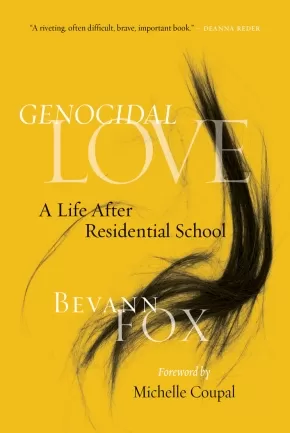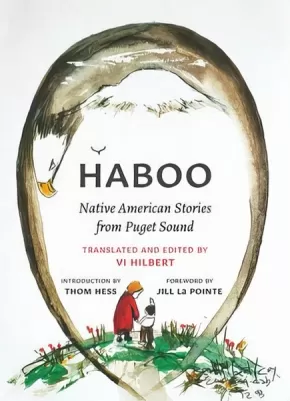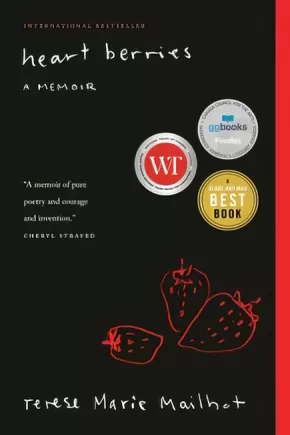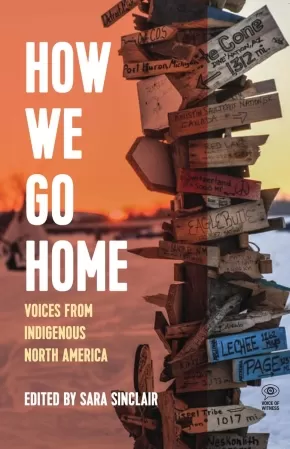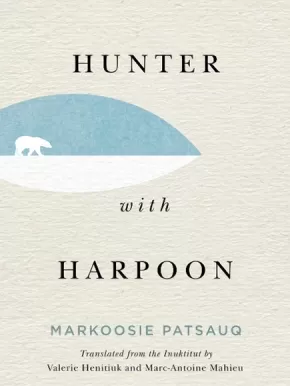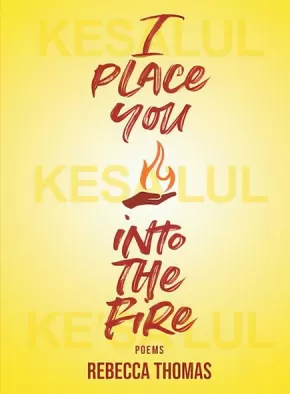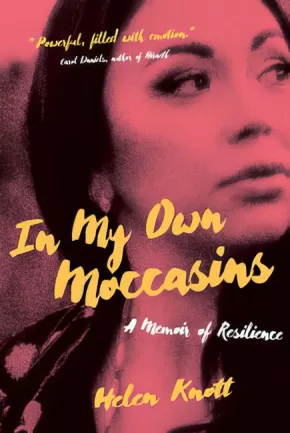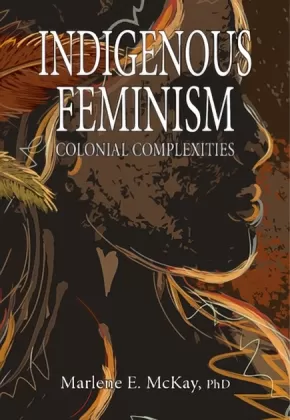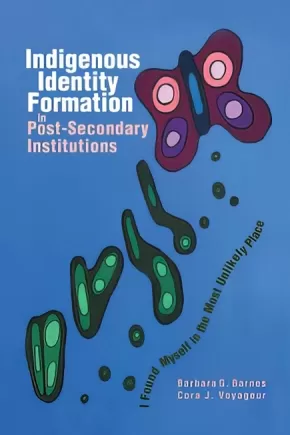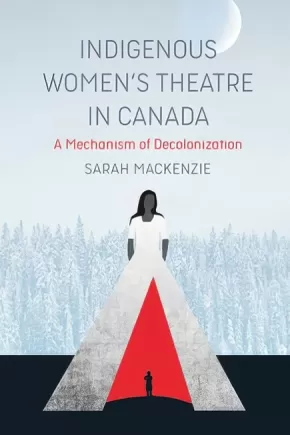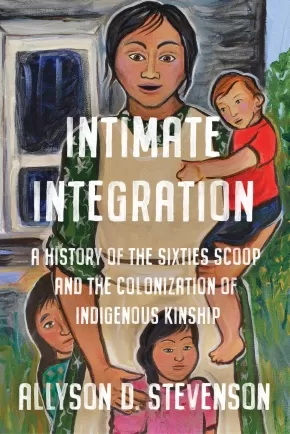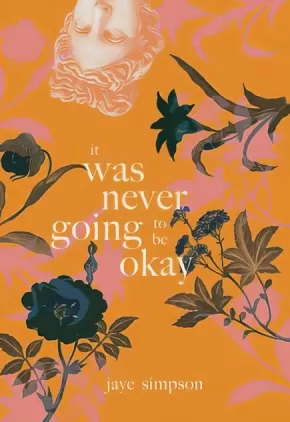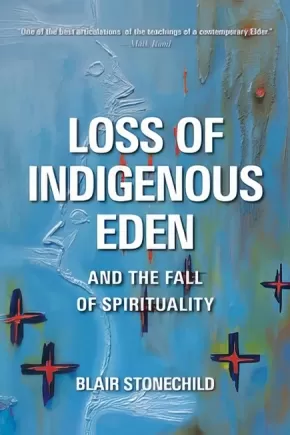Indigenous Studies
Synopsis:
How can we heal in the face of trauma? How can we transform intergenerational pain into a passion for community and healing?
Presenting herself as “Myrtle,” residential school survivor and Indigenous television personality Bevann Fox explores essential questions by recounting her life through fiction. She shares memories of an early childhood filled with love with her grandparents—until she is sent to residential school at the age of seven. Her horrific experiences of abuse there left her without a voice, timid and nervous, never sure, never trusting, affecting her romantic relationships and family bonds for years to come.
This is the story of Myrtle battling to recover her voice. Genocidal Love is a powerful confirmation of the long-lasting consequences of residential school violence —and a moving story of finding a path towards healing.
Awards
- 2021 Indigenous Voices Awards winner for Published Prose in English: Creative Nonfiction and Life-Writing
Reviews
“A riveting, often difficult, brave, important book. ” —Deanna Reder, Chair, Department of Indigenous Studies, Simon Fraser University
“A riveting and courageous reflection. . . . Genocidal Love is unique in its detailed account of the often re-traumatizing effects of the legal and bureaucratic barriers of compensation programs predating the Truth and Reconciliation Commission. ” —Jesse Rae Archibald-Barber, editor of kisiskâciwan and co-editor of Performing Turtle Island
“Fox tears beauty from the jaws of genocide, daring to claim love beyond settler imaginings—love that nurtures decolonial futures and makes possible a more just world. ”—Sam McKegney, author of Magic Weapons and Masculindians
Educator Information
A forward from Michelle Coupal explains more about "Genocidal Love—a story that Bevann tells about herself outside the boundaries of what constitutes fiction and non-fiction".
Additional Information
256 pages | 5.00" x 7.00"
Synopsis:
The stories of the Lushootseed-speaking people of Puget Sound represent an important part of the oral tradition by which one generation hands down beliefs, values, and customs to another. Vi Hilbert grew up when many of the old social patterns survived and everyone spoke the ancestral language.
Haboo, Hilbert’s collection of thirty-three stories, features tales mostly set in a time before the world transformed. Animals, plants, trees, and even rocks had human attributes. Prominent characters like Wolf, Salmon, and Changer and tricksters like Mink, Raven, and Coyote populate humorous, earthy stories that reflect foibles of human nature, convey serious moral instruction, and comically detail the unfortunate, even disastrous consequences of breaking taboos.
Beautifully redesigned and with a new foreword by Jill La Pointe, Haboo offers a vivid and invaluable resource for linguists, anthropologists, folklorists, future generations of Lushootseed-speaking people, and others interested in Native languages and cultures.
Reviews
"The wisdom and teachings found in Haboo continue to offer a . . . resource that highlights a way of being in the world that we have strayed from, and they remain as relevant today as they have been for generations." - from the foreword by Jill La Pointe
Additional Information
232 pages | 6.50" x 9.00" | 20 b&w illustrations, 1 map | Translated and Edited by Val Hilbert, Foreword by Jill La Pointe, Introduction by Thom Hess | 2nd Edition
Synopsis:
Guileless and refreshingly honest, Terese Mailhot's debut memoir chronicles her struggle to balance the beauty of her Native heritage with the often desperate and chaotic reality of life on the reservation.
Heart Berries is a powerful, poetic memoir of a woman's coming of age on the Seabird Island Indian Reservation in British Columbia. Having survived a profoundly dysfunctional upbringing only to find herself hospitalized and facing a dual diagnosis of Post Traumatic Stress Disorder and Bipolar II, Terese Mailhot is given a notebook and begins to write her way out of trauma. The triumphant result is Heart Berries, a memorial for Mailhot's mother, a social worker and activist who had a thing for prisoners; a story of reconciliation with her father--an abusive drunk and a brilliant artist--who was murdered under mysterious circumstances; and an elegy on how difficult it is to love someone while dragging the long shadows of shame.
Mailhot "trusts the reader to understand that memory isn't exact, but melded to imagination, pain and what we can bring ourselves to accept." Her unique and at times unsettling voice graphically illustrates her mental state. As she writes, she discovers her own true voice, seizes control of her story and, in so doing, reestablishes her connection to her family, to her people and to her place in the world.
Educator Information
This book is available in French: Petite Femme Montagne
Additional Information
144 pages | 5.00" x 7.50" | Paperback
Synopsis:
In myriad ways, each narrator's life has been shaped by loss, injustice, and resilience--and by the struggle of how to share space with settler nations whose essential aim is to take all that is Indigenous.
Hear from Jasilyn Charger, one of the first five people to set up camp at Standing Rock, which kickstarted a movement of Water Protectors that roused the world; Gladys Radek, a survivor of sexual violence whose niece disappeared along Canada's Highway of Tears, who became a family advocate for the National Inquiry into Missing and Murdered Indigenous Women and Girls; and Marian Naranjo, herself the subject of a secret radiation test while in high school, who went on to drive Santa Clara Pueblo toward compiling an environmental impact statement on the consequences of living next to Los Alamos National Laboratory. Theirs are stories among many of the ongoing contemporary struggles to preserve Indigenous lands and lives--and of how we go home.
Reviews
“How We Go Home is a testament to modern-day Indigenous revitalization, often in the face of the direst of circumstances. Told as firsthand accounts on the frontlines of resistance and resurgence, these life stories inspire and remind that Indigenous life is all about building a community through the gifts we offer and the stories we tell.”— Niigaan Sinclair, associate professor, Department of Native Studies at the University of Manitoba and columnist, Winnipeg Free Press
“The voices of How We Go Home are singing a chorus of love and belonging alongside the heat of resistance, and the sound of Indigenous life joyfully dances off these pages.”—Leanne Betasamosake Simpson, author of As We Have Always Done
“How We Go Home confirms that we all have stories. These stories teach us history, morality, identity, connection, empathy, understanding, and self-awareness. We hear the stories of our ancestors and they tell us who we are. We hear the stories of our heroes and they tell us what we can be." —Honourable Senator Murray Sinclair
Educator Information
Table of Contents
Editor’s Notes
Introduction (Sara Sinclair)
Executive Director’s Note (Mimi Lok)
Map
Gladys Radek, Terrace, Gitxsan / Wet’suwet’en First Nations—“When Tamara went missing, it took the breath out of me.”
Jasilyn Charger, Cheyenne River Sioux—“My son’s buried by the river. . . . I vowed to him that he’s gonna be safe, that no oil was gonna touch him.”
Wizipan Little Elk, Rosebud Lakota Tribe—“On the reservation, you have the beauty of the culture and our traditional knowledge contrasted with the reality of poverty.”
Geraldine Manson, Snuneymuxw First Nation—The nurse was trying to get me to sign a paper to put our baby, Derrick, up for adoption.”
Robert Ornelas, New York City, Lipan Apache / Ysleta del Sur Pueblo—“A part of the soul sickness for me was being ashamed . . . what we were being taught about Indians was so minimal and so negative.”
Ashley Hemmers, Fort Mojave Indian Tribe—“I didn’t work my ass off to get to Yale to be called a squaw.”
Ervin Chartrand, Selkirk, Métís/Salteaux—“They said I fit the description because I looked like six other kids with leather vests and long hair who looked Indian.”
James Favel, Winnipeg, Peguis First Nation “You’re a stakeholder because you’ve got to walk these streets every day.”
Marian Naranjo, Santa Clara Pueblo—“Indigenous peoples’ reason for being is to be the caretakers of Creator’s gifts—of the air, the water, the land.”
Blaine Wilson, Tsartlip First Nation “When I was twenty-five, thirty, there was more salmon and I was fishing every other day. Now I’m lucky to go once a week.”
Althea Guiboche, Winnipeg, Métis/Ojibwe/Salteaux “I had three babies under three years old and I was homeless.”
Vera Styres, Six Nations of the Grand River, Mohawk/Tuscarora“I was a ‘scabby, dirty little Indian.’”
Glossary
Historical Timeline of Indigenous North America
Essay: 1. The Trail of Broken Promises: US and Canadian Treaties with First Nations
Essay 2: “Indigenous Perspectives on Intergenerational Trauma”: An Interview with Johnna James
Essay 3: Indigenous Resurgence
Ten Things You Can Do
Further Reading
Acknowledgements
Additional Information
331 pages | 6.00" x 9.00" | Paperback
Synopsis:
A new English translation of an acclaimed 1970 novel reveals a stark, powerful story, an Inuit worldview, and the unique voice of Markoosie Patsauq.
Published fifty years ago under the title Harpoon of the Hunter, Markoosie Patsauq's novel helped establish the genre of Indigenous fiction in Canada. This new English translation unfolds the story of Kamik, a young hero who comes to manhood while on a perilous hunt for a wounded polar bear. In this astonishing tale of a people struggling for survival in a brutal environment, Patsauq describes a life in the Canadian Arctic as one that is reliant on cooperation and vigilance.
In collaboration with the author, Valerie Henitiuk and Marc-Antoine Mahieu return to the original Inuktitut text to provide English readers with a more accurate translation. With a preface by Patsauq and an afterword from the translators, this edition offers a fresh and contextualized interpretation of a cultural milestone. Whether revisiting this classic or discovering it for the first time, readers will find in Hunter with Harpoon a sophisticated coming-of-age tale illustrating a way of life not as it appeared to southerners, but as it has survived in the memory of the Inuit themselves.
Educator Information
Translated from the Inuktitut by Valerie Henitiuk and Marc-Antoine Mahieu.
Valerie Henitiuk, translation studies specialist, is provost at Concordia University of Edmonton.
Marc-Antoine Mahieu is professor of Inuktitut at the Institut national des langues et civilisations orientales, Université Sorbonne Paris Cité, and consultant for the Kativik school board in Nunavik.
This book is available in French: Chasseur au harpon
Additional Information
104 pages | 5.98" x 7.99"
Synopsis:
The incisive and vital first poetry collection from Mi'kmaw spoken-word poet and former poet laureate of Kjipuktuk (Halifax), Nova Scotia.
We remember tomorrow and a thousand years ago.
From eel weirs to the buffalo.
We remember petroglyphs and Instagram photos.
See, we remember our history,
Without statues, money, or pictures of the Queen.
In Mi'kmaw, three similarly shaped words have drastically different meanings: kesalul means "I love you"; kesa'lul means "I hurt you"; and ke'sa'lul means "I put you into the fire." In spoken-word artist and critically acclaimed author (I'm Finding My Talk) Rebecca Thomas's first poetry collection, readers will feel Thomas's deep love, pain, and frustration as she holds us all to task, along the way mourning the loss of her childhood magic, exploring the realities of growing up off reserve, and offering up a new Creation Story for Canada.
Diverse and probing, I place you into the fire is at once a meditation on navigating life and love as a second-generation Residential School survivor, a lesson in unlearning, and a rallying cry for Indigenous justice, empathy, and equality. A searing collection that embodies the vitality and ferocity of spoken-word poetry.
Additional Information
128 pages | 5.50" x 7.50"
Synopsis:
Helen Knott, a highly accomplished Indigenous woman, seems to have it all. But in her memoir, she offers a different perspective. In My Own Moccasins is an unflinching account of addiction, intergenerational trauma, and the wounds brought on by sexual violence. It is also the story of sisterhood, the power of ceremony, the love of family, and the possibility of redemption.
With gripping moments of withdrawal, times of spiritual awareness, and historical insights going back to the signing of Treaty 8 by her great-great grandfather, Chief Bigfoot, her journey exposes the legacy of colonialism, while reclaiming her spirit.
Reviews
"A beautiful rendering of how recovery for our peoples is inevitably about reconnecting with Indigenous identities, lands, cultural and healing practices." —Kim Anderson, author of Reconstructing Native Womenhood
"In My Own Moccasins never flinches. The story goes dark, and then darker. We live in an era where Indigenous women routinely go missing, our youth are killed and disposed of like trash, and the road to justice doesn’t seem to run through the rez. Knott’s journey is familiar, filled with the fallout of residential school, racial injustice, alcoholism, drugs, and despair. But she skillfully draws us along and opens up her life, her family, and her communities to show us a way forward. It’s the best kind of memoir: clear-eyed, generous, and glorious….Bear witness to the emergence of one of the most powerful voices of her generation." —Eden Robinson, author of Son of a Trickster and Monkey Beach (from the foreword)
“Helen Knott speaks truth to the experience of Indigenous women living through the violence of colonized spaces and she does so with grace, beauty and a ferocity that makes me feel so proud.” —Leanne Betasamosake Simpson, author of This Accident of Being Lost
“Helen writes beautifully and painfully, about her own life and the lives of many of our sisters. A strong, gentle voice removing the colonial blanket and exposing truth.” —Maria Campbell, author of Halfbreed
“An incredible debut that documents how trauma and addiction can be turned into healing and love. I am in awe of Helen Knott and her courage. I am a fan for life. Wow.” —Richard Van Camp, author of The Lesser Blessed
“Heartfelt, heartbreaking, triumphant and raw, In My Own Moccasinsis a must-read for anyone who's ever felt lost in their life… Actually, it's a must-read for anyone who appreciates stories of struggle, redemption and healing. Knott’s writing is confident, clear, powerful and inspiring.”—Jowita Bydlowska, author of Guy: A Novel and Drunk Mom
Additional Information
366 pages | 6.00" x 9.00"
Synopsis:
Indianthusiasm refers to the European fascination with, and fantasies about, Indigenous peoples of North America, and has its roots in nineteenth-century German colonial imagination. Often manifested in romanticized representations of the past, Indianthusiasm has developed into a veritable industry in Germany and other European nations: there are Western and so-called “Indian” theme parks and a German hobbyist scene that attract people of all social backgrounds and ages to join camps and clubs that practise beading, powwow dancing, and Indigenous lifestyles.
Containing interviews with twelve Indigenous authors, artists, and scholars who comment on the German fascination with North American Indigenous Peoples, Indianthusiasm is the first collection to present Indigenous critiques and assessments of this phenomenon. The volume connects two disciplines and strands of scholarship: German Studies and Indigenous Studies, focusing on how Indianthusiam has created both barriers and opportunities for Indigenous peoples with Germans and in Germany.
Educator Information
This work speaks to concepts of representation, Indigeneity, transnationality, and politics of decolonization. It asks critical questions about authenticity, cultural appropriation, and probes the biased and racist aspects of what is seen as simple "honoring" of Indigenous cultures. The interviews in this work act as mythbusters but also offer a number of conflicting Indigenous perspectives. This work explores the transatlantic connections created by Indianthusiam.
Useful for Indigenous Studies and German Studies.
Table of Contents
1. Introduction / Hartmut Lutz, Florentine Strzelczyk, and Renae Watchman
2. I thought to myself: “Well, I’ll appropriate from the people who appropriated from us” / Ahmoo Angeconeb
3. Most people can’t be informed because of the way they are being informed / Jeannette Armstrong
4. Germany is my other Heimat now; "Groan" (poem) / John Blackbird
5. The focus on remembering … a sort of superego kind of thing / Warren Cariou
6. When the gaze turns in both directions / Jo-Ann Episkenew
7. I actually never wanted to like Germany / Audrey Huntley
8. The thorn is in my side when I’m talking to Europeans, who begin lecturing me on Indianness / Thomas King
9. You can deal with stereotypes! At least you are dealing with some knowledge / David T. McNab
10. It’s been my job to not only entertain them through my dancing and singing, but also to educate them in the actual original traditional stories / Quentin Pipestem
11. I was definitely an ambassador and sort of a mythbuster in many ways / Waubgeshig Rice
12. You can’t underestimate the influence of Karl May’s Winnetou / Drew Hayden Taylor
13. They want redemption somehow / Emma Lee Warrior
Additional Information
254 pages | 6.00" x 9.00"
Synopsis:
Indigenous Feminism: Colonial Complexities involves naming the ways that Indigenous women, with a focus on northern Saskatchewan, are caught up at every moment in ideas and beliefs about who we are; as much as we know differently, the power of these ideas continues to press on us in all kinds of large and subtle ways. The resistance to the power of these ideas and their impact on the lives of Indigenous women has a long history, but the racism continues. The book makes a contribution toward naming the power of racism and patriarchy within Indigenous communities.
Reviews
"McKay’s Indigenous Feminism: Colonial Complexities is a layered, methodical theoretical exploration of how the powerful forces and continually created discursive practises of colonialism, Christianity, the Indian Act and Indigenous knowledge systems influence single parent, northern Saskatchewan Indigenous women’s identities and relationships in complex and sometimes contradictory ways. The women’s visions of a better future anchor their decision-making as they swim against and through the overwhelming systemic legacy of oppressive forces running through their lives and that sometimes jeopardize their relationships." - Rita Bouvier, semi-retired Metis educator and poet
Additional Information
139 pages | 6.00" x 9.00"
Synopsis:
A new model of Indigenous identity formation in Canadian postsecondary institutions
What role does postsecondary education play in the formation of Indigenous identity? Some argue that this impact must be negative, not only because postsecondary education draws students away from their communities, but also because of the Eurocentric worldviews that dominate most institutions. However, according to a ground-breaking study by Barbara Barnes and Cora Voyageur, the truth is much more nuanced and surprising.
During their research, Professors Barnes and Voyageur followed 60 Indigenous students from a variety of backgrounds at six postsecondary institutions in western Canada, and they present their findings here. They explore how the students’ experiences fit with conventional and Indigenous identity-formation theories, and they consider the impacts of colonization and the Indian Act.
Based on the experiences of the students, Barnes and Voyageur build an entirely new model of Indigenous identity formation in Canadian postsecondary institutions.
Additional Information
144 pages | 6.00" x 9.00"
Synopsis:
Despite a recent increase in the productivity and popularity of Indigenous playwrights in Canada, most critical and academic attention has been devoted to the work of male dramatists, leaving female writers on the margins. In Indigenous Women’s Theatre in Canada, Sarah MacKenzie addresses this critical gap by focusing on plays by Indigenous women written and produced in the socio-cultural milieux of twentieth and twenty-first century Canada.
Closely analyzing dramatic texts by Monique Mojica, Marie Clements, and Yvette Nolan, MacKenzie explores representations of gendered colonialist violence in order to determine the varying ways in which these representations are employed subversively and informatively by Indigenous women. These plays provide an avenue for individual and potential cultural healing by deconstructing some of the harmful ideological work performed by colonial misrepresentations of Indigeneity and demonstrate the strength and persistence of Indigenous women, offering a space in which decolonial futurisms can be envisioned.
In this unique work, MacKenzie suggests that colonialist misrepresentations of Indigenous women have served to perpetuate demeaning stereotypes, justifying devaluation of and violence against Indigenous women. Most significantly, however, she argues that resistant representations in Indigenous women’s dramatic writing and production work in direct opposition to such representational and manifest violence.
Educator Information
Table of Contents
Violence Against Indigenous Women and Dramatic Subversion
Reclaiming Our Grandmothers in Monique Mojica’s Princess Pocahontas and the Blue Spots and Birdwoman and the Suffragettes: A Story of Sacajawea
Community and Resistance in Marie Clements’ The Unnatural and Accidental Women and Now Look What You Made Me Do
Media, Gendered Violence, and Dramatic Resistance in Yvette Nolan’s Annie Mae’s Movement and Blade
Indigenous Women’s Theatre: A Transnational Mechanism of Decolonization
References
Index
Additional Information
200 pages | 6.00" x 9.00" | Paperback
Synopsis:
Privileging Indigenous voices and experiences, Intimate Integration documents the rise and fall of North American transracial adoption projects, including the Adopt Indian and Métis Project and the Indian Adoption Project. Allyson D. Stevenson argues that the integration of adopted Indian and Métis children mirrored the new direction in post-war Indian policy and welfare services. She illustrates how the removal of Indigenous children from their families and communities took on increasing political and social urgency, contributing to what we now call the "Sixties Scoop."
Making profound contributions to the history of settler colonialism in Canada, Intimate Integration sheds light on the complex reasons behind persistent social inequalities in child welfare.
Reviews
"While the process of Truth and Reconciliation in Canada has raised awareness about residential schooling, what remains less known is the equally devastating systemic and ongoing assault on Indigenous children through the child welfare system. Allyson D. Stevenson thoroughly maps out this truth, shedding new light on the role of the state in causing multigenerational trauma to Indigenous families." — Kim Anderson, Canada Research Chair in Indigenous Relationships, University of Guelph, author of A Recognition of Being: Reconstructing Native Womanhood
"Intimate Integration is politically sharp, carefully researched, and intellectually generous. Allyson D. Stevenson transforms how we see modern Canadian colonialism and the range of ways that Indigenous people have resisted and rebuilt in the face of it." — Adele Perry, Department of History and Women’s and Gender Studies, University of Manitoba
"Deftly weaving together academic training in history and lived experience as a Métis adoptee, Allyson D. Stevenson provides a path-breaking, powerful, eye-opening study that is essential reading for Canadians seeking to understand the trauma of child removal on Indigenous families and communities as well as their resistance and resilience." — Sarah Carter, Department of History and Classics, University of Alberta
Educator Information
Table of Contents
Prologue
Introduction
1. The Bleeding Heart of Settler Colonialism
Indigenous Legal Orders and the Indian Act
From wáhkôhtowin to Transracial Adoption
2. Adoptive Kinship and Belonging
Gender and Family Life in Cree Métis Saskatchewan
The Emergence of the Euro-Canadian Adoption Paradigm
Indigenous Adoption and Euro-Canadian Law
3. Rehabilitating the “Subnormal [Métis] Family” in Saskatchewan
4. The Green Lake Children’s Shelter Experiment: From Institutionalization to Integration in Saskatchewan
The Social Work Profession and the Rationalized Logics of Indigenous Child Removal in Saskatchewan
5. Post-War Liberal Citizenship and the Colonization of Indigenous Kinship
The 1951 Indian Act Revisions and the rise of “Jurisdictional Disputes”
6. Child Welfare as System and Lived Experience
Adopting a Solution to the Indian Problem
7. Saskatchewan’s Indigenous Resurgence and the Restoration of Indigenous Kinship and Caring
8. Confronting Cultural Genocide in the 1980s
Conclusion: Intimate Indigenization
Epilogue: Coming Home
Bibliography
Primary Sources
Interviews
Newspapers
Government Documents
Statues, Regulations, and Court Cases
Statutes of Canada
Saskatchewan Statues
Statutes of the United States
Archival Series
Printed Government Documents
Canada. Department of Citizenship and Immigration. Indian Affairs Branch. Annual Reports, 1950–1965
Printed Primary Sources
Secondary Sources
Websites
Additional Information
352 pages | 6.00" x 9.00" | 47 illustrations | Paperback
Synopsis:
it was never going to be okay is a collection of poetry and prose exploring the intimacies of understanding intergenerational trauma, Indigeneity and queerness, while addressing urban Indigenous diaspora and breaking down the limitations of sexual understanding as a trans woman. As a way to move from the linear timeline of healing and coming to terms with how trauma does not exist in subsequent happenings, it was never going to be okay tries to break down years of silence in simpson’s debut collection of poetry:
i am five
my sisters are saying boy
i do not know what the word means but—
i am bruised into knowing it: the blunt b,
the hollowness of the o, the blade of y
Awards
- 2021 Indigenous Voices Awards winner for Published Poetry in English.
Reviews
"jaye simpson’s it was never going to be okay is a symphony of unrelenting rage and undying hope that beckons to be heard, seen and held with the utmost care. In this stunning debut they speak truths to the complexities of the body, land and memory through an intimately structured and poignant cadence. This collection will leave you longing for more and, in the legacy of trans Indigenous literature, change lives." — Arielle Twist, author of Disintegrate/Dissociate
"jaye simpson marshals a vast economy of images because their subject matter is as large as an entire country, as the colonial past, as structures of oppression and indifference that undermine Indigenous and trans livability. At the level of craft, simpson makes use of the codes of tragedy, polemic, autobiography and the lyric artfully and powerfully. By the book’s end, buoyed by its final beautiful and tender section, a kind of love letter to trans Indigenous peoples, one is called on to build a new world. In this way, jaye simpson's poetry is a vital artifact of a decolonial future!" — Billy-Ray Belcourt, 2018 Griffin Poetry Prize winner for This Wound Is a World
Additional Information
112 pages | 5.50" x 8.00"
Synopsis:
In 1867, Canada’s federal government became responsible for the education of Indigenous peoples: Status Indians and some Métis would attend schools on reserves; non-Status Indians and some Métis would attend provincial schools. The chapters in this collection – some reflective, some piercing, all of them insightful – show that this system set the stage for decades of broken promises and misguided experiments that are only now being rectified in the spirit of truth and reconciliation. The contributors individually explore what must change in order to work toward reconciliation; collectively, they reveal the possibilities and challenges associated with incorporating Traditional Knowledge and Indigenous teaching and healing practices into school courses and programs.
Reviews
"This book provides innovative reflections on long-standing issues in Indigenous education in Canada and suggests possible pathways to address the educational debt that Canada owes Indigenous peoples. I recommend it to educators, students, and administrators, to anyone interested in learning about the history of residential schools, and to all readers who are interested in reconciliation and decolonisation." — Valentina de Riso, Nottingham Trent University, British Journal of Canadian Studies
"There is no doubting the importance of the subject tackled by this edited collection... In eleven highly diverse chapters, plus a substantial introduction by editor Sheila Carr-Stewart, this collection seeks to shed light on the mechanisms of educational exclusion and sound out the prospects for a different kind of education in the future." — Mark Fettes, Simon Fraser University, University of Toronto Quarterly
"Readers who are new to the topic, such as practicing teachers who wish to enhance their responsiveness to Indigenous students or undergraduate history majors, will gain accessible historical and policy context, alongside complex and nuanced representations of the challenges that pervade Indigenous education today." — Heather E. McGregor, Historical Studies in Education
"Knowing the Past, Facing the Future is critical reading for those invested in Indigenous education, as all Canadians ought to be. By confronting colonialism and racism as they intersect with reconciliation, the contributors of this collected work address the role and responsibility of education in decolonizing a society. I recommend this book be read by all educators."— Margaret Kovach, author of Indigenous Methodologies: Characteristics, Conversations, and Contexts
"New and seasoned readers to Indigenous education in Canada will value how the authors tackle old issues in new ways, uncover challenges that have been ignored, and present innovative possibilities that learn from the past for a much better future."— Jo-ann Archibald (Q’um Q’um Xiiem), co-editor of Decolonizing Research: Indigenous Storywork as Methodology
"This must-read collection of essays provides needed historic reflections on treaties and Indigenous peoples’ aspirations for education, and much needed insight, support, and research to address the reconciliation agenda and correct the longstanding educational debt owed Indigenous peoples."— Marie Battiste, author of Decolonizing Education: Nourishing the Learning Spirit
Educator Information
Contributors: Jonathan Anuik, Michael Cottrell, Karlee D. Fellner, Rosalind Hardie, Darryl Hunter, Harry Lafond, Solange Lalonde, Brooke Madden, Yvonne Poitras Pratt, Jane P. Preston, Larry Prochner, Noella Steinhauer
Additional Information
312 pages | 6.00" x 9.00" | Paperback
Synopsis:
As a follow-up to his award-winning The Knowledge Seeker: Embracing Indigenous Spirituality, Blair Stonechild continues his exploration of the Indigenous spiritual teachings passed down to him by Elders, and then moves his study further afield. He identifies the rise of what he terms a dominant wetigo worldview, marked by an all-consuming and destructive appetite that is antithetical to the relational philosophy of Indigenous thinking whereby all things are interrelated and in need of care and respect.
Based on Stonechild’s work with Indigenous peoples around the world, from Inuit communities in northern Canada, to the Mapuche in Chile, the Dalits in India and the Uighurs in the Xinjiang Autonomous Region of China, The Loss of Indigenous Eden and the Fall of Spirituality brings together and highlights the fundamental commonalities that connect all Indigenous nations, while calling for global recognition and respect of their rights and spirituality.
Reviews
“One of the best articulations in print of some introductory teachings of a contemporary Elder.” —Mark Rumi, professor of Religion and Culture, University of Winnipeg
“It is thought-provoking, philosophical, informative, and celebrates the resilience and strength of Indigenous spirituality and our relationships to the sacred.” —Kathleen E. Absolon-King, author of Kaandossiwin
Additional Information
288 pages | 6.00" x 9.00"

